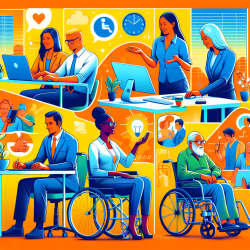In a groundbreaking study titled Sexual orientation and gender identity and expression conversion exposure and their correlates among LGBTQI2+ persons in Québec, Canada, researchers have uncovered alarming data on the prevalence of conversion therapy among LGBTQI2+ individuals in Québec. Despite greater acceptance of sexual and gender diversity, the study found that 26.4% of respondents have experienced conversion attempts, and 4.4% have been involved in conversion services. This blog aims to help practitioners improve their skills by implementing the outcomes of this research or by encouraging them to conduct further research.
Key Findings
The study, which involved 3,261 LGBTQI2+ individuals, highlighted several crucial points:
- Over two-thirds of respondents identified family members as responsible for conversion attempts.
- Transgender participants were more likely to have experienced conversion efforts targeting their gender identity and expression.
- Healthcare professionals and members of the clergy were commonly identified as service providers.
- Older generations reported higher involvement in conversion services compared to younger cohorts.
Actionable Insights for Practitioners
As a practitioner focused on creating great outcomes for children, it's essential to understand the implications of these findings and take action:
1. Educate and Train
Ensure that all healthcare providers and therapists are adequately trained in LGBTQI2+ affirmative approaches. This training should cover the harmful effects of conversion therapy and promote acceptance and support for diverse sexual orientations and gender identities.
2. Family Counseling
Given the significant role families play in conversion attempts, provide counseling services to families to help them understand and accept their LGBTQI2+ children. This can reduce the pressure on children to conform to cisheteronormative norms.
3. Advocate for Legal Bans
While legal bans on conversion therapy are a crucial step, they are not enough. Advocate for comprehensive laws that address covert practices and provide support for survivors of conversion therapy.
4. Religious Counselors' Training
Religious therapists should undergo supervision to ensure that their beliefs do not interfere with their practice. Encourage them to explore how their faith can support rather than harm LGBTQI2+ individuals.
Encouraging Further Research
There is still much to learn about the experiences of LGBTQI2+ individuals with conversion therapy. Encourage further research to explore the long-term effects of conversion attempts and to identify effective interventions that can support survivors.
To read the original research paper, please follow this link: Sexual orientation and gender identity and expression conversion exposure and their correlates among LGBTQI2+ persons in Québec, Canada.










